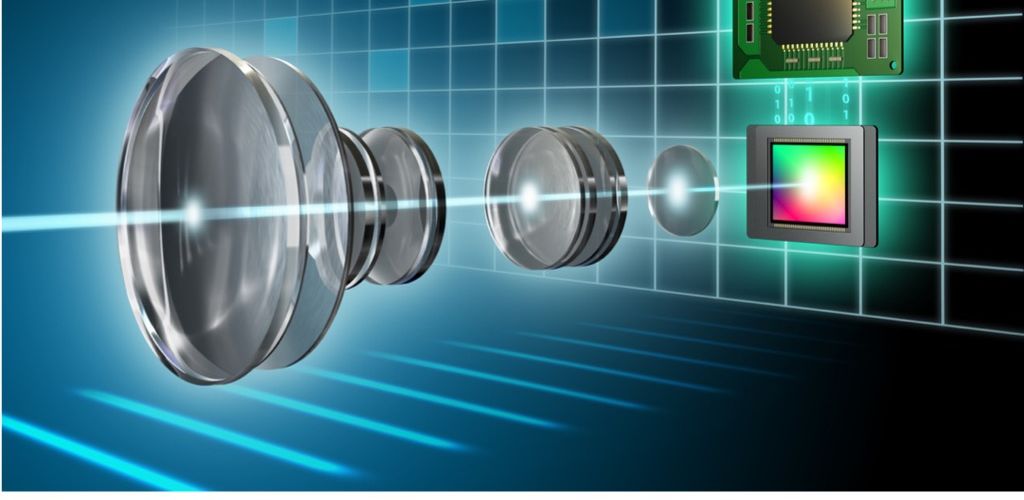Computational Imaging
Computational Imaging jointly designs optics and algorithms. This field of research is inherently interdisciplinary, combining expertise in imaging science, optical engineering, signal processing and machine learning. Computational imaging can overcome physical limitations and achieve novel capabilities, from advancing experimental observation techniques used in biology, to highly novel imaging system methods to atomic force microscopy. Computational Imaging serves a broad range of scientific, defense and security, biomedical, and neuroscience applications.
Super Headlights: Superconducting Nanowire Detectors for Passive Infrared Sensing
CISE Faculty Affiliate Professor Vivek Goyal (ECE) received a Defense Advanced Research Projects Agency (DARPA) subaward for his work in connection with the agency’s Invisible Headlights program. Professor Goyal is working under an award to MIT entitled, “Super Headlights: Superconducting Nanowire Detectors for Passive Infrared Sensing.” The DARPA Invisible Headlights program has a very ambitious […]
Seeing Blind No More: The Future of Safely Navigating Blind Corners
Sheila Seidel develops safer systems with various applications through her work on non-line-of-sight imaging. Imagine you are a soldier walking through a tunnel in enemy territory. You come to an intersection and must choose to continue to the right or left. The wrong choice could be fatal, leading you straight into your enemy’s direct line […]
Goyal Achieves Record-Breaking Distances for Non Line of Sight Imaging, Featured in PNAS
Vivek Goyal, a CISE research affiliate and professor from the College of Engineering (ECE), worked as part of a team led by Professor Feihu Xu of the University of Science and Technology of China to demonstrate non-line-of-sight (NLOS) imaging and real-time tracking of hidden objects over a distance of 1.43 kilometers. Using both software and […]
A novel method for volumetric oxygen mapping in living retina
It is widely accepted that oxygen deficiency is a culprit and a marker of several major retinal diseases, including diabetic retinopathy, age-related macular degeneration, glaucoma etc. However, it remains to be extremely challenging to measure oxygen in vivo in the eye, and no tools currently exist that can provide 3D oxygen distributions in the retina […]
New Frontiers in Self-driving Cars
Lidar, used in most self-driving cars, models the world around them by creating 3D representations of a scene in view. Photo by John D. SL/Shutterstock One of the most promising developments born out of the 2005 DARPA Grand Challenge was the use of lidar technology in self-driving cars, also known as autonomous vehicles (AVs). […]
Joshua Rapp wins the 2020 IEEE SPS Young Author Best Paper Award
Boston University alumnus Joshua Rapp (Ph.D. ECE ’20) has won the 2020 IEEE Signal Processing Society Young Author Best Paper Award. This prestigious award will be presented to Dr. Rapp by IEEE Signal Processing Society President Ahmed Tewfik at the ICASSP 2021 in Toronto, Canada, June 6-11, 2021. Rapp was a student of CISE faculty […]
Collaborative Research: CIF: Medium: Occlusion and Directional Resolution in Computational Imaging
Seeing around a corner without using a mirror seems like an impossible feat, and an ordinary camera does not seem to help. In this project, the research team will develop systems to process images and videos from ordinary cameras to construct around-the-corner views and to infer other scene features that are hidden from direct view […]
A Bug’s-Eye View
Researchers develop a new camera inspired by insects’ compound eyes Even though we’ve developed the ability to shrink down cameras to fit on a phone, the underlying principle of the camera itself hasn’t really progressed. As a camera gets smaller, there’s a trade-off between field-of-view and image quality; the larger the field-of-view, the more distorted […]
Goyal Wins IEEE Signal Processing Society Best Paper Award
Boston University ECE professor Vivek Goyal was awarded a 2019 IEEE Signal Processing Society Best Paper Award for his work on “Photon-Efficient Computational 3-D and Reflectivity Imaging With Single-Photon Detectors” paper. The paper, which was co-authored with Goyal’s students Dongeek Shin and Ahmed Kirmani along with Professor Jeffrey Shapiro of MIT, was published in the […]
A Computational Miniature Mesoscope for Large-Scale Brain Mapping in Behaving Mice
Scale is a fundamental obstacle in linking neural activity to behavior. While perception and cognition arise from interactions between diverse brain areas separated by long distances, neural codes and computations are implemented at the scale of individual neurons. An integrative understanding of brain dynamics thus requires cellular-resolution measurements across sensory, motor, and executive areas spanning […]
